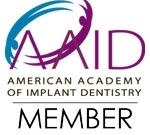3 Common Oral Surgery Procedures

When a family dentist discusses oral surgery, some patients experience dread and anxiety about the cost and pain of such procedures. Read on to learn more about oral surgery. Many patients are unaware that dental surgery is common and involves treatments that address problems that affect many individuals. Dental surgery is often performed as an outpatient operation, and patients may return to regular activities within a few days.
3 Commonly performed oral surgery procedures
The most frequent kinds of oral surgery are treatments that are so common that many people do not think of them as dental surgery. They include:
1. Root canal treatment
The most frequently performed oral surgery is perhaps a root canal treatment. Every year, millions of teeth are treated, sparing many from extraction and alleviating pain and sensitivity. Root canals are usually painless and very efficient in relieving pain.
The dental pulp lies underneath a tooth's enamel and contains blood vessels and nerve endings. Bacteria penetrate the tooth when it is decaying and destroy the pulp. Tooth discomfort, swelling, and possible neck or jaw pain are all symptoms of infected pulp. A dentist can treat this by removing the infected pulp and the decaying part of the tooth via a root canal procedure.
2. Dental implants
A dental implant is a replacement for a tooth's roots. The process involves using titanium posts to attach crowns to the jawbone. These metals are chosen because they are light and biocompatible, meaning they integrate well with body tissues. Dental implants are used to replace teeth that have been lost due to factors such as decay, infection, oral cancer, and poor oral hygiene habits.
Dental implants are a more involved procedure because the bone must fuse correctly with the metal post before the replacement tooth can be installed. The integration process can take between three to six months, after which the dentist will attach a dental restoration such as a crown or bridge to finish the procedure.
3. Wisdom tooth extraction
Wisdom teeth are the third molars, which typically appear between the ages of 17 and 25. Wisdom teeth that do not have enough space to develop may become impacted, causing discomfort, mouth infections, and other dental issues. Even if impacted teeth are not problematic, dentists often recommend wisdom tooth removal as a preventive measure.
The extraction of wisdom teeth is an outpatient treatment and requires some time for recovery. The wisdom teeth are extracted via surgical incisions, and the extraction site is stitched up afterward to ensure healing. To prevent excessive bleeding or blood clots, it is critical to follow the dentist's instructions during the healing process.
The bottom line
Whether you need minor restorative oral surgery or significant dental treatment, your family dentist should be a major part of your oral health journey. Taking a proactive approach to your oral health may help you avoid tooth loss and major oral surgery.
Request an appointment here: https://www.chasingsmilesllc.com or call Chasing Smiles at (334) 276-4446 for an appointment in our Roanoke office.
Check out what others are saying about our dental services on Yelp: Oral Surgery in Roanoke, AL.
Related Posts
As a parent, you probably understand that pediatric dentistry is an important aspect of your child's overall health. However, you first need to deal with the teething process as the baby teeth emerge from the gums. It varies among babies, but teething typically begins around six months of age. Common symptoms include sore and irritated…
Routine professional dental care is important for people of all ages, including children. Visiting a pediatric dentistry office is the right choice for many families because of the numerous benefits it offers. While any type of regular professional dental care is good for your child's oral health, working with a pediatric dentist can be especially…
There are many ways to keep your teeth bright, white, and healthy. However, you may see unfamiliar stains or shades on your teeth, making them appear gray. Fortunately, a general dentist can evaluate gray teeth by identifying the root cause of the change.It is common for teeth to change color, and it does not always…
Toothaches are commonplace for children and adults alike, but you should still contact your pediatric dentistry office if your child complains of one. This is especially true if the oral pain is:SuddenUnexplainedChronic or reoccurringWorsens with timeContinues for more than a dayAccompanied by other symptoms, such as bleeding, inflammation, oozing, or feverA dentist can help you…




